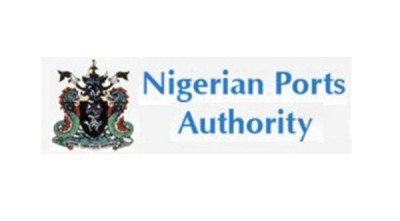•FIRS’ sole right to assess petroleum profit tax upheld
•Judges say oil firms can’t determine what to pay as tax
•FIRS’ sole right to assess petroleum profit tax upheld
•FIRS’ sole right to assess petroleum profit tax upheld
THE Court of Appeal in Abuja has set aside a portion of an arbitral award got by Shell Nigeria Exploration and Production Limited (Shell) and Esso Exploration and Production Limited (Esso) against the Nigerian National Petroleum Corporation (NNPC).
By the portion of the award, made by an arbitration tribunal in Lagos on October 24, 2011, NNPC was ordered, among others, to pay Shell and Esso over $2.5 billion for abusing a Production Sharing Contract (PSC) between them in relation to the operation of an oil field identified as Erha Deepwater Project.
Shell and Esso particularly accused NNPC of assuming their responsibilities, under the PSC, including determining what should be paid to the Nigerian government as petroleum profit tax (PPT), and that in so doing, NNPC over-lifted petroleum products valued at $1,207,500,000 to pay its unilaterally assessed tax on their behalf (Shell and Esso).
On learning about the Shell and Esso case against NNPC, which will require it to refund the tax paid to it by NNPC on behalf of Shell and Esso, the Federal Inland Revenue Service (FIRS) went before the Federal High Court in Abuja to challenge the aspect of the arbitral proceedings relating to tax issues.
The arbitration tribunal, at the end of its proceedings on October 24, 2011, ordered NNPC to pay Esso and Shell $1,799,000,000, “with simple interest at the rate of 30-day LIBOR plus four per cent from December 17, 2007 (the date of breach) until April 30, 2011,” estimated at $243,000,000.
It asked NNPC to pay another “simple interest at the rate of 30-day LIBOR plus four per cent on the $1,799,000,000 from April 30, 2011 up until the date of payment;” and a further “sum determined by the volume and value of over-lifting by the respondent that has taken place since April 30, 2011 and until the date of this final award, plus simple interest at the rate of 30-day LIBOR plus four per cent from April 30, 2011 up until the date of payment”.
However, in his judgment on March 9, 2012 on the suit by FIRS, Justice Adamu Bello (now retired) of the Federal High Court, Abuja set aside the October 24, 2011 arbitral award/judgment on the ground that the arbitration tribunal lacked the jurisdiction to have entertained dispute relating to tax, a decision Shell and Esso appealed to the Court of Appeal, Abuja.
The Court of Appeal, in a unanimous judgment of a three-man panel on March 10 this year, a copy of which The Nation accessed last Friday, set aside the monetary award against NNPC, held that oil companies lacked the power to determine what profit tax to pay and that such responsibilities reside solely with the FIRS under the country’s laws.
Justice Emmanuel Akomaye Agim, in the lead judgment, faulted the exercise of jurisdiction over a tax related dispute by an arbitration tribunal.
He noted: “The payment of petroleum profit tax (PPT) by parties to a production sharing contract is not governed by the Arbitration and Conciliation Act.
“The assessment and determination of the PPT payable and the collection of such tax are governed by the Federal Inland Revenue Service (FIRS) Act and Petroleum Profit Tax (PPT) Act.”
Justice Agim said FIRS was right to have challenged the arbitral proceedings while it was still on, because it relation to tax dispute, which an arbitration tribunal lacked jurisdiction to entertain.
He said the order by the arbitral tribunal that NNPC cease making tax payments inconsistent with PPT returns prepared by the appellants, one of the reliefs claimed for by the appellants in the tribunal, takes away the discretionary power given the FIRS by Section 35(2) & (3) of the PPT Act, to accept returns filed with it and assess a tax payer’s tax liability on the basis of them or refuse to accept the returns, assess the tax payable on its own best judgment.
Justice Agim said: “This relief has the effect of taking away completely the 1st respondent’s statutory power to assess and determine the tax payable vested in it (FIRS) by Section 35, 36 and 37 of the PPT Act and Section 43(1) of the same Act, which makes the assessment by the 1st respondent final and conclusive.
“The order defeats the operation of sections 52 and 53 of the PPT Act, which makes the filing of inaccurate PPT returns an offence.
“Therefore, the duty of the parties to the PSC to pay the PPT for the contract area and the exercise of the statutory powers of the 1st respondent to assess, determine and collect petroleum profit tax from oil producing companies in Nigeria and the non-refundability of paid PPT, except the part considered as overpayment, not arbitrable,” Justice Agim said.
He faulted the decision by Shell and Esso to refer to an arbitration tribunal, their grievance over the way NNPC handled the issues of tax assessment and payment.
Justice Agim noted where oil companies have issues with tax assessment by FIRS, they can, by virtue of the provisions of sections 42 and 43 of the PPT Act, appeal to Tax Appeal Commissioners, and further to the Federal High Court for the finality and conclusiveness of the assessment.
He said: “On the whole, this appeal succeeds in part and fails in part. The judgment of the Federal High Court at Abuja in suit No: FHC/AB/CS/764 delivered on March 9, 2012 by A. Bello J. (Justice A. Bello), nullifying the entire arbitration agreement between the appellants and 2nd respondent, the arbitration proceedings and the award is hereby set aside, except as it affects the request or claims for reliefs F, H and I in the arbitration proceedings and the award of the same reliefs by the arbitral tribunal.
“For the avoidance of doubt, the judgement nullifying the request for reliefs F, H & I in the arbitration proceedings and the award of these reliefs by the arbitral tribunal is upheld and affirmed.
“The part of the judgment dismissing the preliminary objection to the jurisdiction of the Federal High Court to entertain and determine the suit is affirmed and upheld in respect of the request for reliefs F, H & I in the arbitration proceedings,” Justice Agim said.
Justices Tinuade Akomolafe-Wilson and Tani Yusuf Hassan, who were on the panel, agreed with Justice Agim’s reasoning in the lead judgment.
Comments by IntenseDebate
Posting anonymously.
Court sets aside $2.5b judgment awarded to Shell, Esso against NNPC
News|

 Logging you in...
Logging you in...







.webp)
























